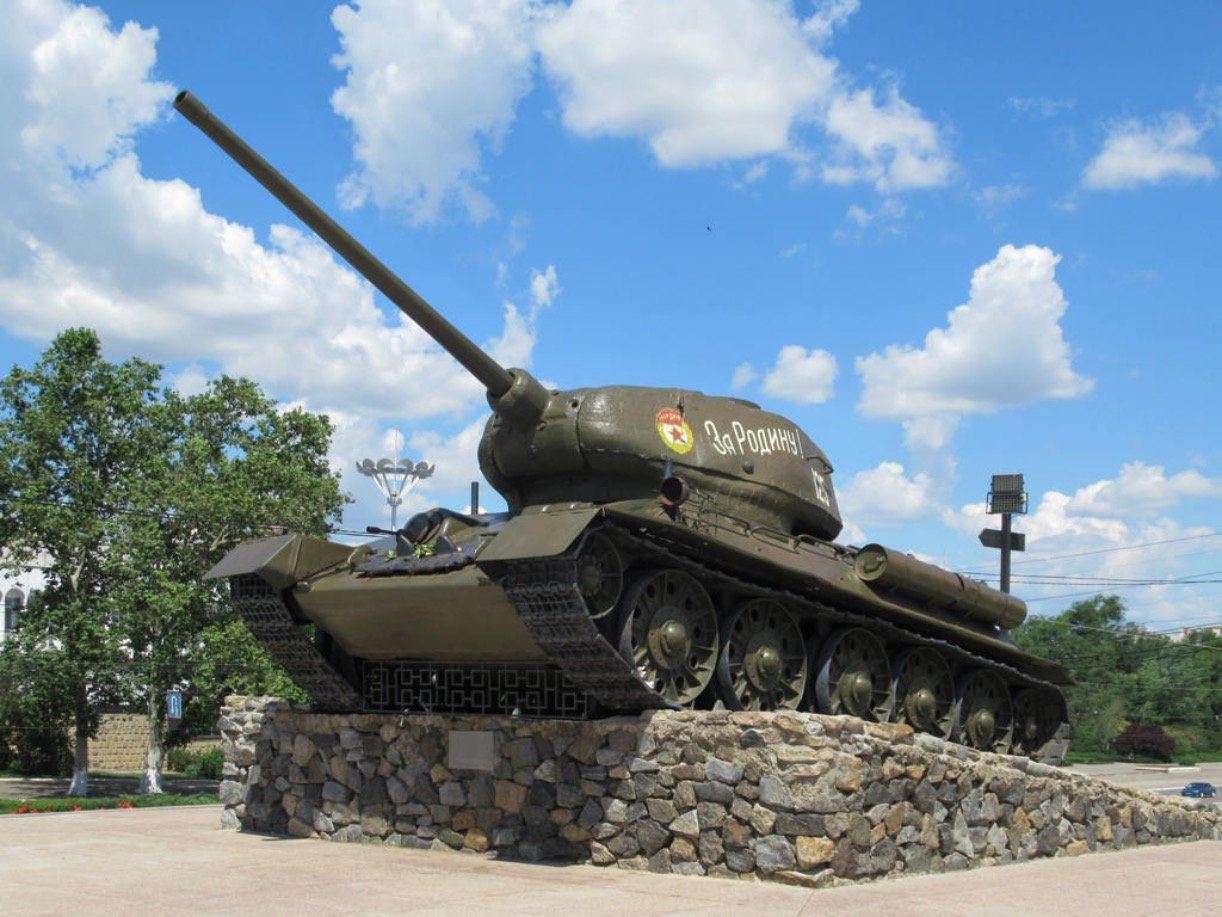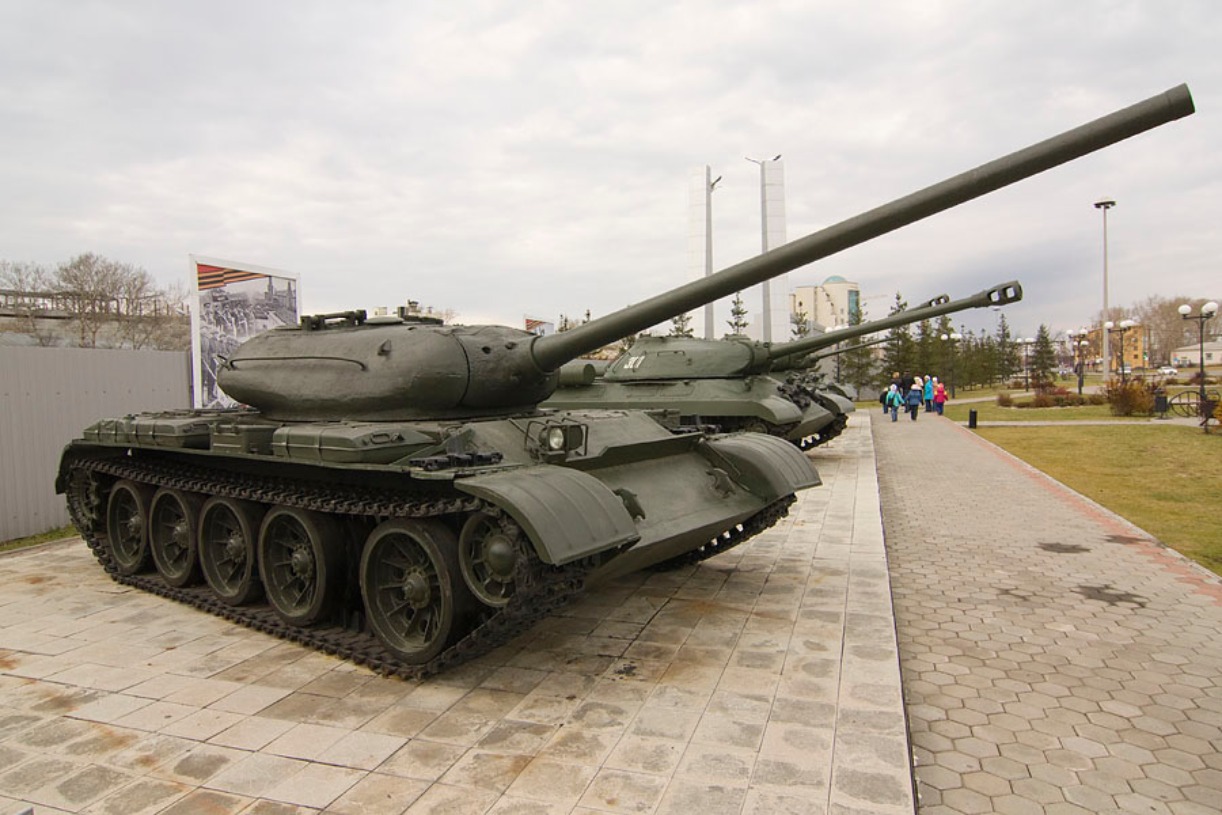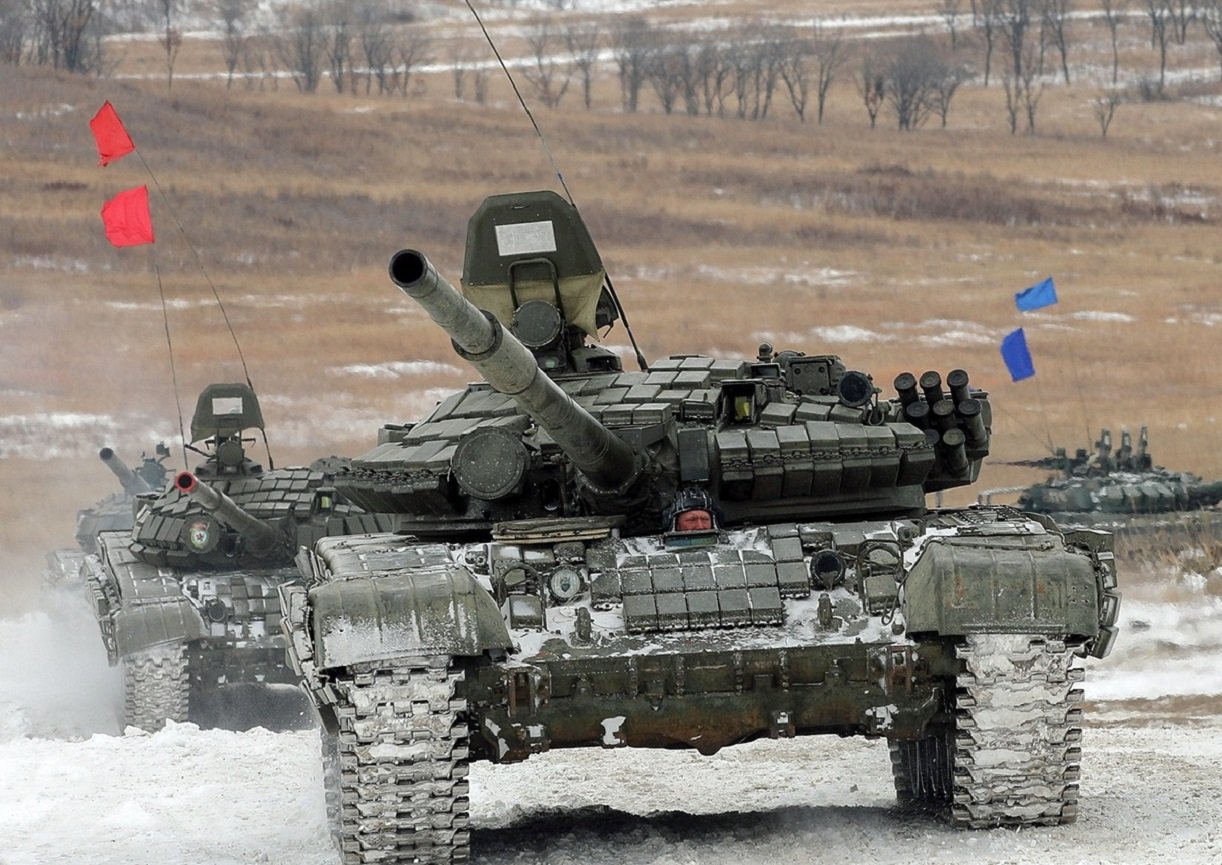Russian tanks have taken a severe beating, both in reputation figuratively and literally, thanks to the grievous losses that they have incurred during Vladimir Putin’s ongoing “special military operation” in Ukraine.
It is probably only a slight exaggeration that Russian-made armor – from the Soviet and post-Soviet eras – has become a laughingstock.
But this wasn’t always the case. There was a time when Soviet-made tanks were among the most feared and battle-proven in the world. With that in mind, let’s look at what I consider the 5 best tanks ever produced by the so-called “Rodina (Motherland).”
The T-34
Arguably the most successful tank to ever come out of Mother Russia, in terms of sheer numbers produced, kills attained against enemy tanks, and sheer notoriety, was the Soviet T-34.
Whether or not it was truly Josef Stalin who coined the saying “Quantity has a quality all its own,” the T-34 embodied that saying, with a total of 84,000 being produced between 1940 and 1958.
But the T-34 did have quality to go with the sheer quantity. It revolutionized the concept of sloped armor to bolster survivability, with a heavy slope of up to 60 degrees that more than compensated for the relatively modest thickness of 45 to 60 mm.
As amateur historian Simon Whistler notes, “Sloped armor is one of those innovations that it seems very obvious in hindsight, but it doesn’t look that revolutionary. But make no mistake, this small difference in design was so crucial to the success of the T-34 that other countries including Germany began incorporating it into their own tank designs.”
Meanwhile, the T-34 could dish out punishment as well as take it, with a 41-caliber 76mm main gun that was more than a match for the armor of Nazi Germany’s Panzer III and IV medium tanks.

Next to Vasily Zaitsev’s Mosin-Nagant sniper rifle at the Battle of Stalingrad, the T-34 was the weapons system that arguably played the biggest role in the Red Army’s turning of the tide during Operation Barbarossa; no less an adversarial armored warfare expert than Generaloberst (“Colonel General”) Heinz Guderian, who affirmed the T-34’s “vast superiority” over those of Wehrmacht, whilst Generalfeldmarschall Paul Ludwig Ewald von Kleist declared it “the finest tank in the world.”
The IS-2 (aka JS-2) “Josef Stalin”
Speaking of Josef Stalin, the next tank on this list actually bears his name. While the T-34 was a medium tank – weighing 31 tons – the IS-2 was a heavy tank, weighing in at 46 tons, with armor 160mm thick at the turret front, and wielding a 122mm main gun.
These upticks in size, armor, and armament alike were necessitated by Hitler’s own heavy tanks like the legendary Tiger (which did in fact outclass the T-34, contrary to popular misconception).
According to Jon Guttman:
“The 46-ton IS-2 proved intrinsically superior to the Panther medium tank and able to hold its own against the Tiger I and II heavies in gun duels up to 3,000 feet … [T]he IS-2 contributed enough to be hyped as the ‘Victory Tank’ by the Soviets and inspired a generation of improved models … before Communist First Secretary Nikita Khrushchev, judging the heavy tank more expensive than it was worth, ditched the entire concept after 1960.”
The T-54/55
The T-54/55 was the first postwar Soviet main battle tank, becoming one of the enduring symbols of Red Army armor during the Cold War as well as that of Arab armies in that same timeframe.

And it embodied the “Quantity has a quality all its own” even more so than the T-34, as the T-54/55 was THE most-produced tank in history, with roughly 100,000 assembled between 1946 and 1981. It was the tank used to crush the Hungarian freedom fighters of 1956, and 24 years later became the Soviets’ mainstay MBT during the initial invasion and occupation of Afghanistan, with only one lost out of 800 deployed during the entirety of that ultimately ill-fated campaign. It also performed well in the Vietnam War, the 1970 Jordanian Civil War, the 1982 Lebanon War, and the Iran-Iraq War.
The T-62
The T-62 was the immediate successor to the T-55, and, according to HowStuffWorks, marked the end of one era and the beginning of a new one. “The T-62 MBT signaled the end of the class of heavy tanks worldwide. As heavily armed and gunned as the heavy tank but far lighter and more mobile, the MBT now reigned supreme.”
To cite Jon Guttman again, “The principal advance in the T-62 was its main weapon, the first smoothbore cannon mounted on a production tank.” Syrian-crewed T-62s performed well during the 1973 Yom Kippur War.
The T-72
Yes, the T-72 tank was starkly demonstrated during the 1991 Persian Gulf War to be out of its league when pitted against the American M1 Abrams main battle tank, and history repeated itself during the 2003 Iraq War rematch.
But it’s easy to forget that prior to 1991, the T-72 actually had a pretty fearsome reputation, and with good reason.

The T-72 served Saddam’s elite Republican Guard troops quite well during the Iran-Iraq War in the 1980s; in one particular engagement, a battalion of T-72s completely destroyed an Iranian tank battalion comprised of British-made Chieftain tanks without incurring any losses in exchange.
And, as noted in a standalone article on the T-72, the tank earned respect of the Israeli Defense Force (IDF) troops who went up against it during the 1982 Lebanon War, and the Syrian soldiers who pitted the T-72s against the IDF were very appreciative of their tanks’ survivability, with a contemporaneous Christian Science Monitor article reporting stories of Hafez Assad’s troops hugging the T-72s’ armor “in gratitude.”
And despite the severe mauling that Russia’s T-72 crews have been taking in the current Russo-Ukrainian conflict, it’s worth noting that Forbes has published an article by David Axe titled “As Ukraine Loses More And More Of Its Best Leopard 2 Tanks, It’s Turning Back To Old T-72s.”


